Modern Foreign Languages
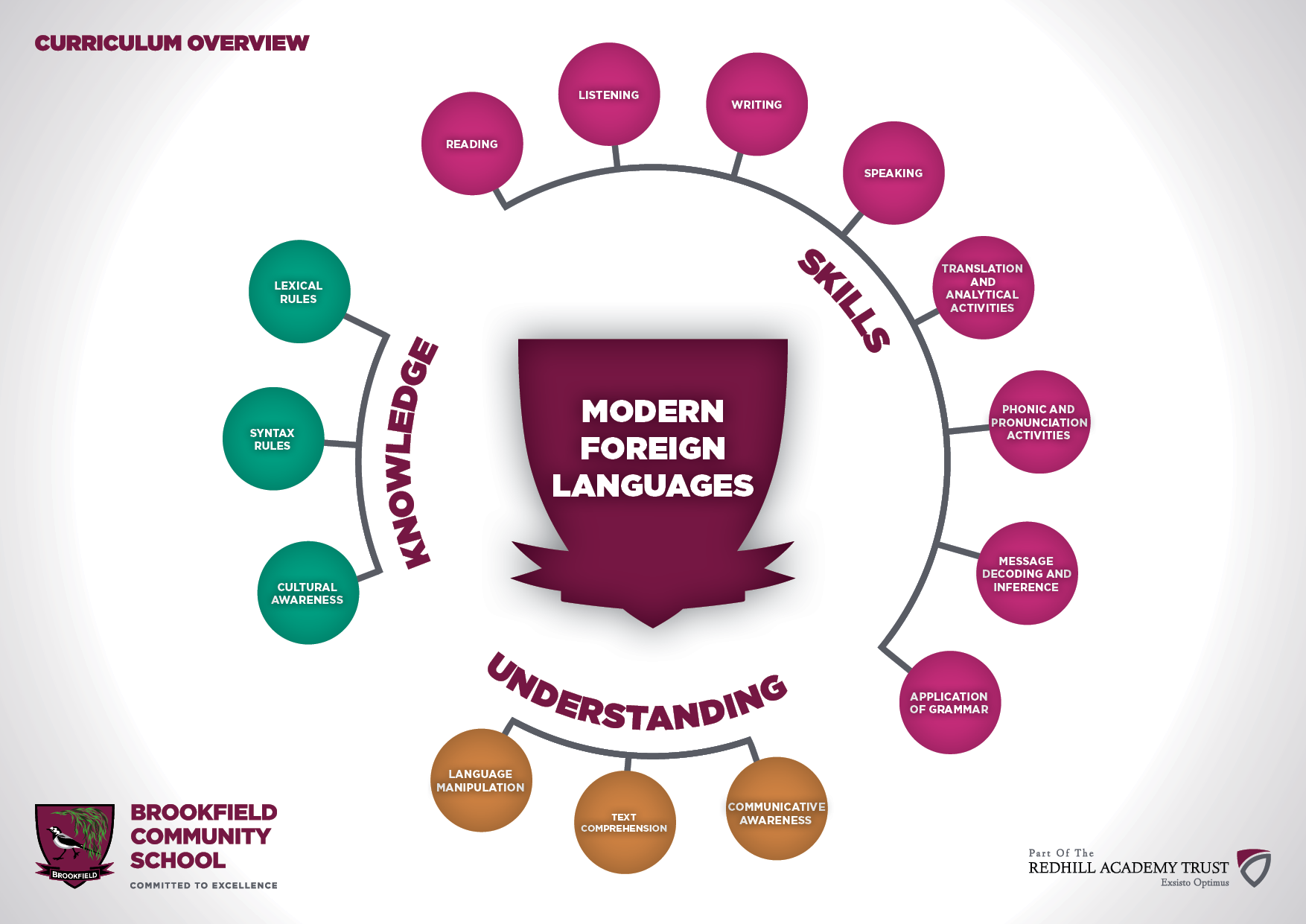 Click image to view full size.
Click image to view full size.
Introduction to Modern Foreign Languages
The MFL department aim to create and develop enthusiastic and independent learners. We are committed to establishing and maintaining a learning environment that encourages students to feel confident about taking risks and developing informed opinions about the world around them.
Our curriculum focuses on learning and knowledge, rather than teaching; we want students to reflect on and enhance their skills, ask questions and enjoy challenge. The MFL department boasts a coherently planned and well-sequenced set of lessons that integrates new knowledge into larger concepts, which allows students to access and flourish within an ambitious, knowledge rich curriculum.
We actively seek opportunities for all students to independently extend their skills beyond the classroom and therefore prepare for life beyond Brookfield Community School and develop the knowledge and cultural capital they need to succeed in life; moulding our students into global citizens of the future.
Languages are for life. The study of a modern foreign language is seen as an important part of our students’ education as languages are omnipresent in the cultural tapestry of our society and the world in which we live and work.
The ability to understand and communicate in another language is a lifelong skill for education, employment and leisure in this country and throughout the world.
Key Stage 3
Being a trilingual MFL department, we believe in maintaining and protecting a broad language offer, with courses in French, German and Spanish being offered to students. Upon entry in Year 7, all students will study one foreign language in mixed ability groups spread over two hours a week. Half of the cohort will be allocated one foreign language and the other half will study a different foreign language. The languages on offer for any given cohort are run on a rotational basis year by year.
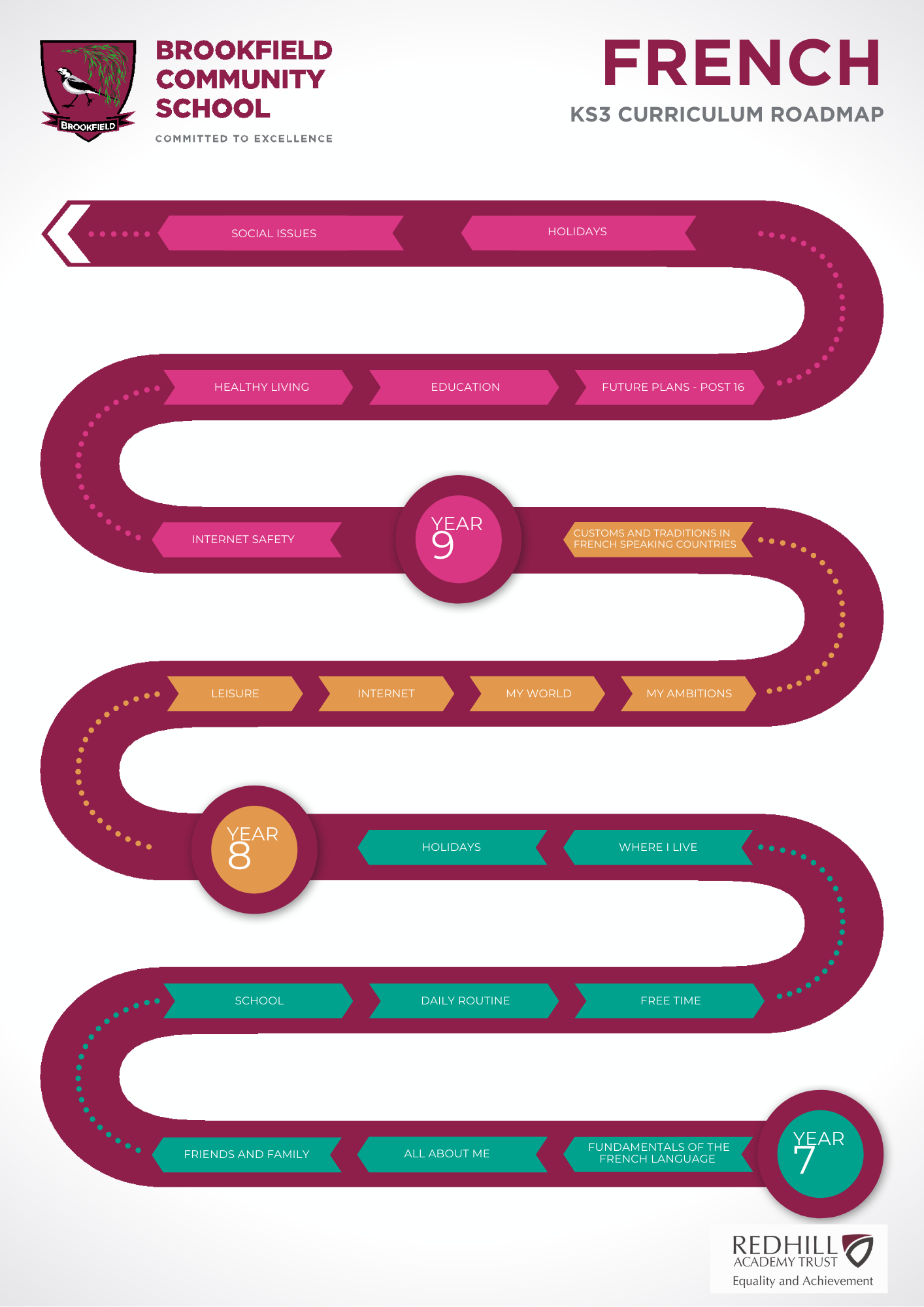
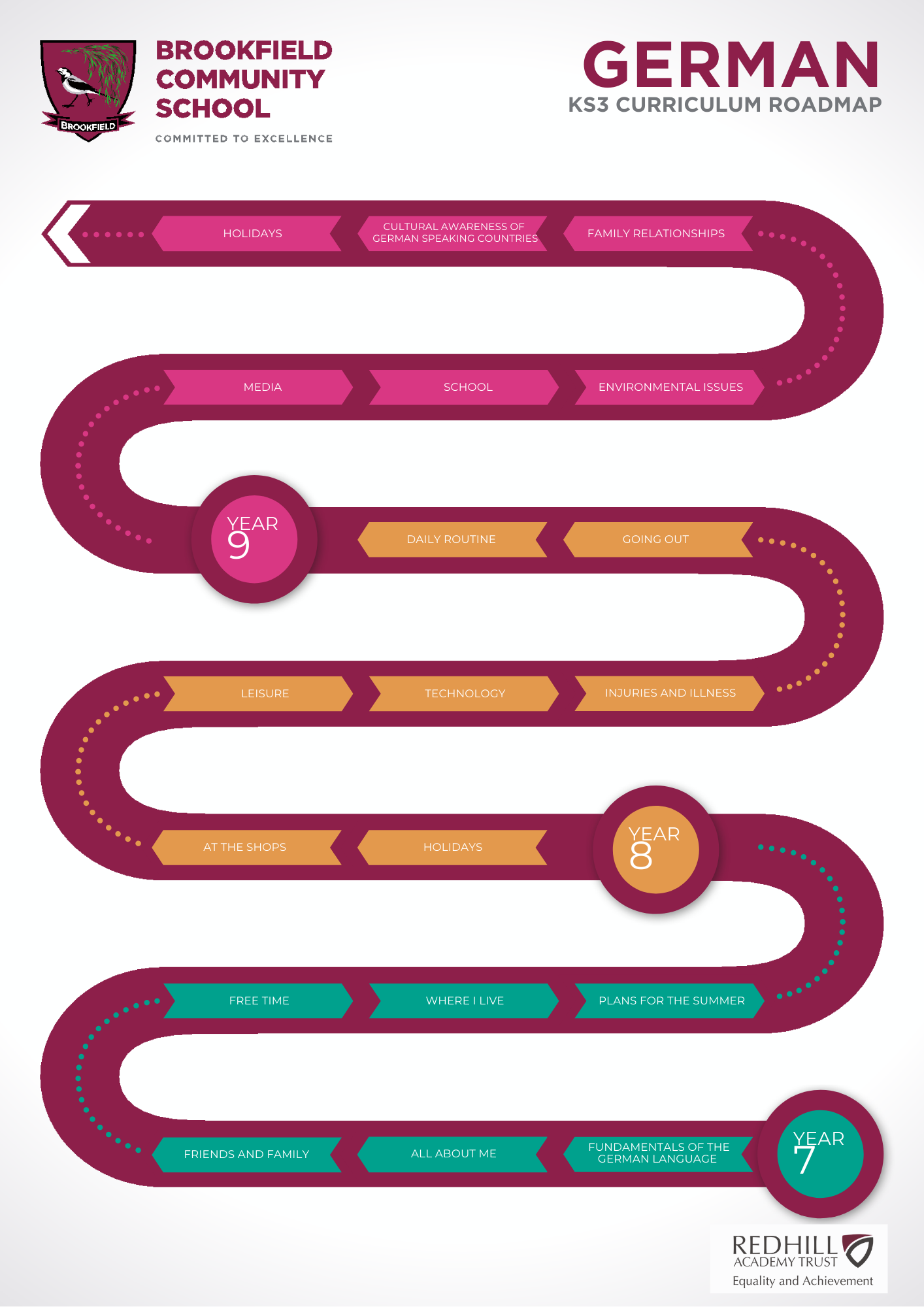
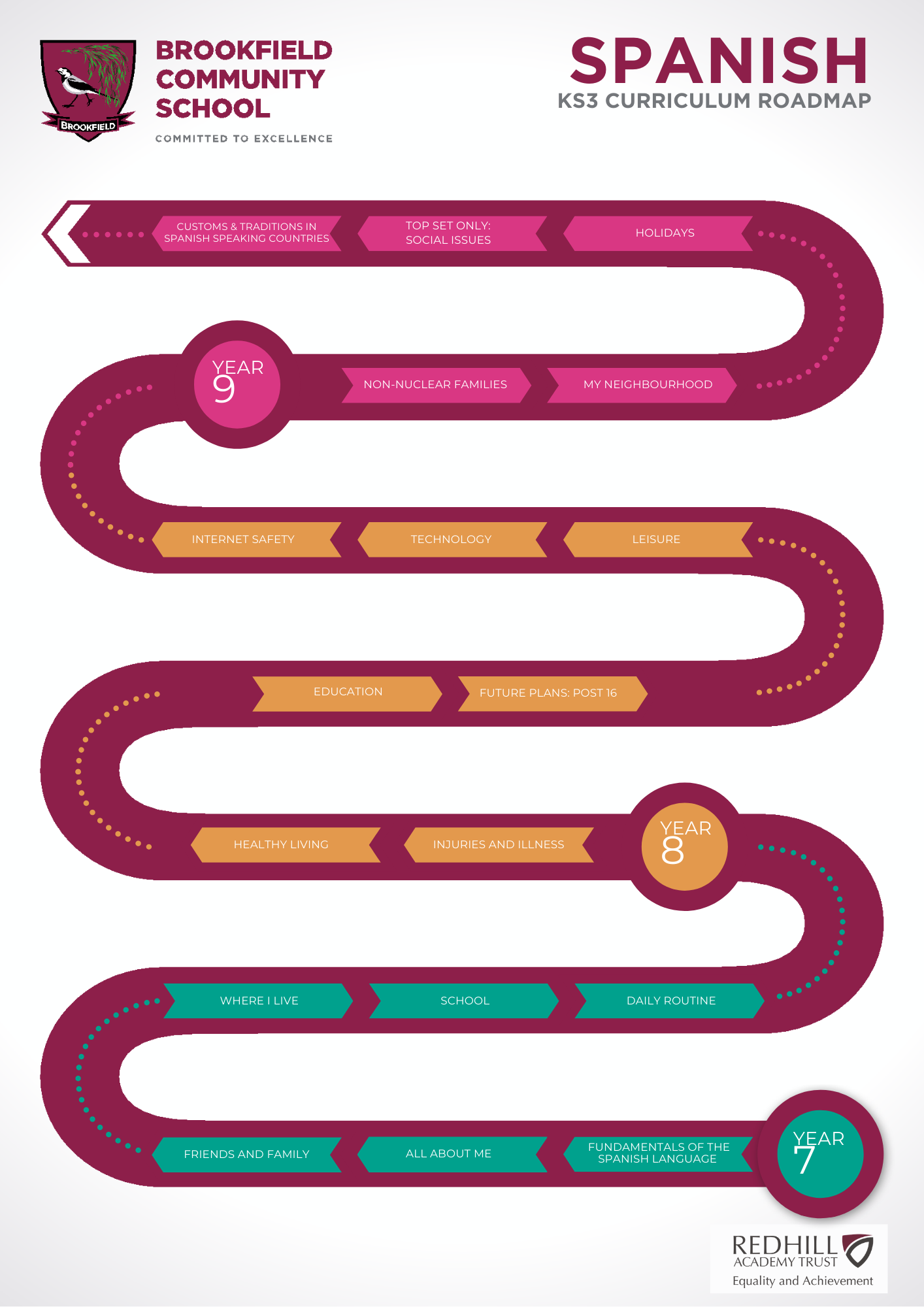
Key Stage 4
GCSE French
GCSE German
GCSE Spanish
Exam Board: AQA
The Course
Students will develop proficiency in listening, reading, speaking and writing and will acquire transferable skills, relevant to further study and the world of work. Throughout the course, students will develop skills and knowledge that enable them to communicate in a variety of contexts with confidence. The course is designed to expand upon students’ awareness of the culture and society of countries where the foreign language is spoken.
How are students assessed?
The GCSE course has a Foundation Tier (grades 1-5) and a Higher Tier (grades 4-9) and students are tested in all four elements; listening, reading, speaking and writing. The speaking exam is conducted internally with the class teacher and the recordings are then sent off for external grading. The listening, reading and writing elements are all tested in the form of exam papers.
The breakdown of the assessment is as follows:
Writing: Written exam - 35 minutes (Foundation Tier), 45 minutes (Higher Tier)
- Speaking exam: Non-exam assessment - 7–9 minutes (Foundation Tier) + preparation time, 10–12 minutes (Higher Tier) + preparation time
- Reading exam: Written exam - 45 minutes (Foundation Tier), 1 hour (Higher Tier)
- Listening exam: Written exam - 1 hour (Foundation Tier), 1 hour 15 minutes (Higher Tier)
Each of the above elements equates to 25% of the total GCSE.
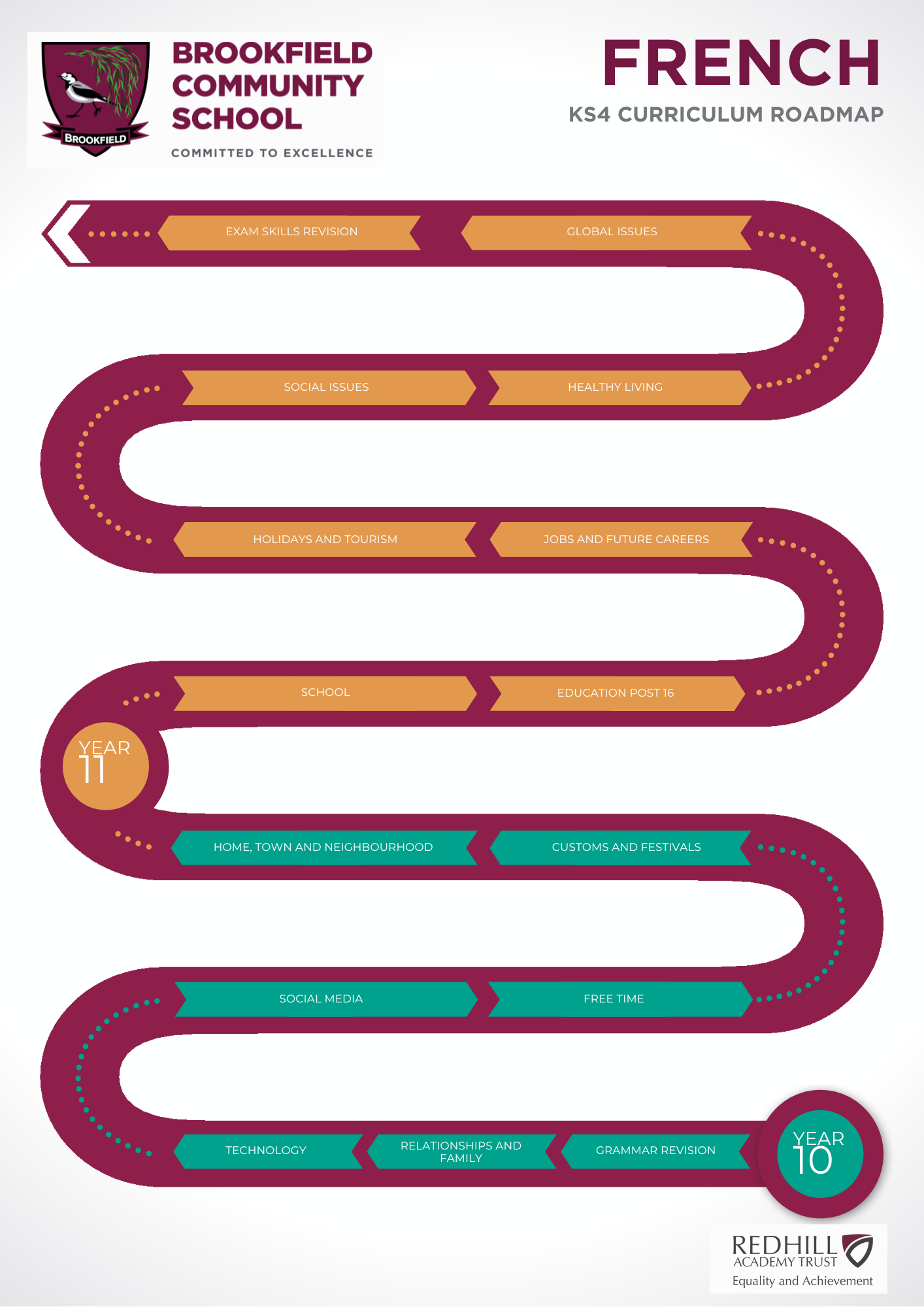
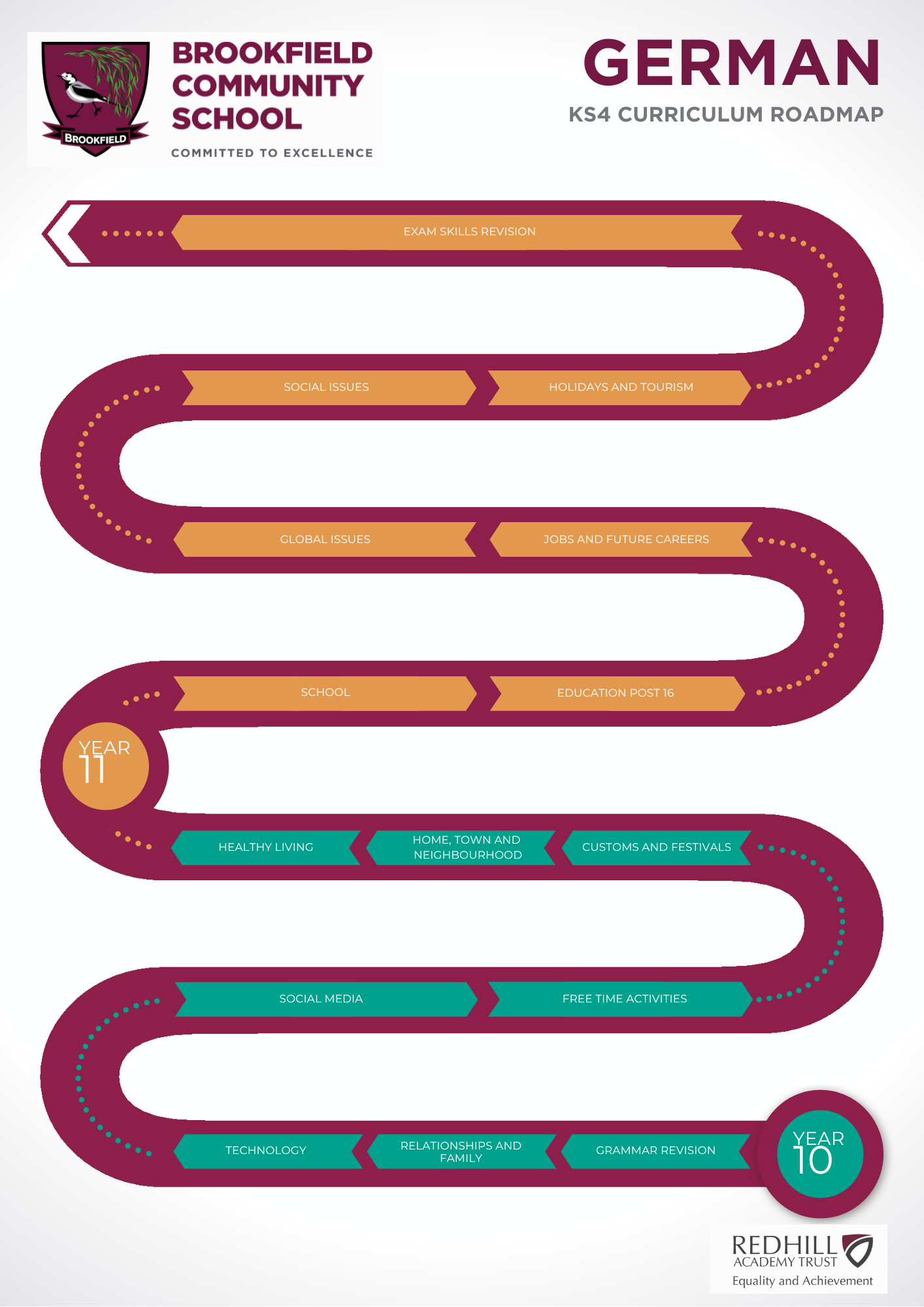
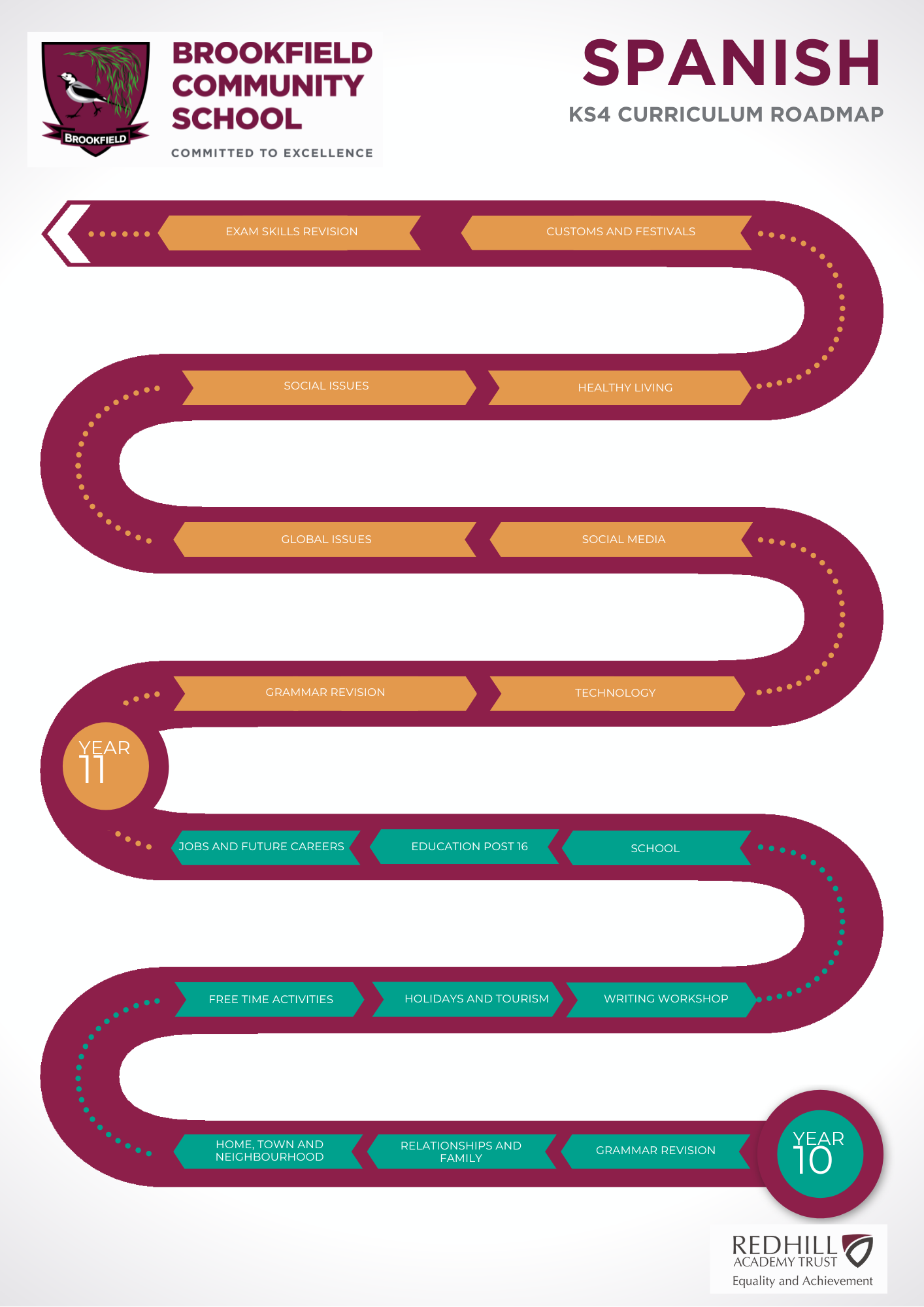
Key Stage 5
A Level French A Level German
A Level Spanish
Exam Board: AQA
The Course
In Year 12, students will study in greater depth topics that are an extension of themes studied at GCSE, before branching out in Year 13 into areas relevant to Spanish and French society, such as immigration, racism and politics. Students will then be required to select an area of interest related to a Spanish or French-speaking country or society in order to research and present an individual research project as part of their speaking assessment. During the course, students will also broaden their horizons and knowledge through the study of a set text and a film, rich in cultural references.
How are students assessed?
The A Level course is a linear course that does not offer tiered assessment. The speaking exam is conducted internally with the class teacher and the recordings are then sent off for external grading. Students are tested on speaking, listening, reading and writing through the following breakdown of exams:
Listening, reading and writing: Written exam – 2 hour 30 minutes (50% of A Level)
Writing: Written exam on one text and one film – 2 hours (20% of A Level)
Speaking: Oral exam – 21-23 minutes + preparation time (30% of A Level)
Enrichment
GCSE and A Level support groups are commonplace at lunchtime and after school, providing students with lots of opportunity to gain extra teacher input and focused practice.
Progression Opportunities
In today’s increasingly globalised world, the advantages surrounding the learning of a foreign language can scarcely be underestimated. A premium is now placed upon job candidates who can speak more than one language and who understand different cultures. For example, an engineer who can speak German or Japanese alongside English will see all sorts of extra opportunities open up before them, as will a salesperson who can speak Spanish or Chinese.
Language is the soul of a society, thus the facility to comprehend a language is a vital prerequisite for jobs such as historians, people who work in tourism and hospitality and those who study international affairs. What’s more, understanding the skeletal roots of a language can also support the acquisition of specialised terminology in other professional fields, such as medicine and law.
In addition to the subject specific language and knowledge that students acquire, language learners also benefit from many other widely desired employability skills, such as greater capacity in problem-solving and creative thinking. Also, the progressive evolvement of a higher order cultural and social awareness is omnipresent throughout the language learning journey, as students are exposed to seeing the world in a different light and begin to experience other societies with superior sensitivity.
Speaking a second language can really springboard students into various profitable positions in their adult lives. Not only can it give students a much better chance of finding meaningful employment, but it can also sensitise them to a plethora of diverse cultures and experiences.

